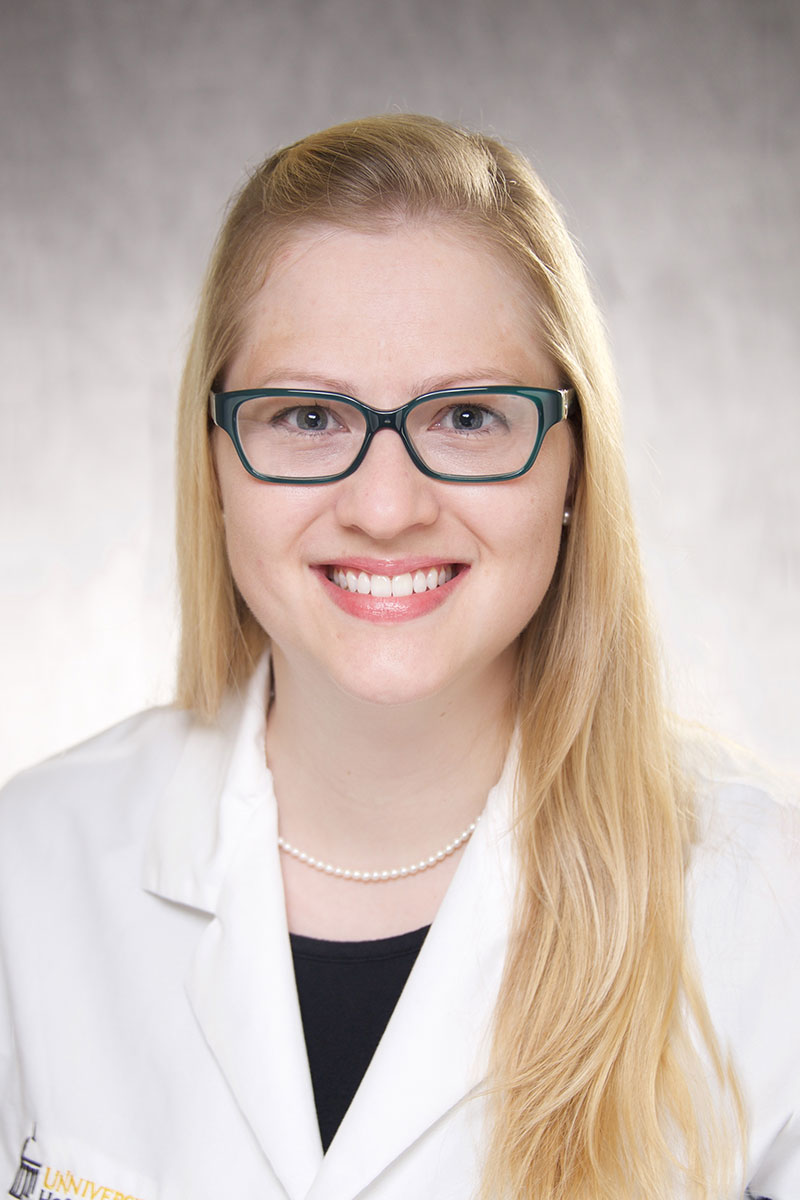Blood Banking and Transfusion Medicine Fellowship
About the Program
We invite you to consider the advantages of a program that will expose you to:
- high-powered faculty members dedicated to your success
- comprehensive exposure to all subspecialties
- a state-of-the-art clinical facility
The accomplishments of our fellowship graduates demonstrate our commitment to help you develop the necessary skills to succeed in your career endeavors. The Blood Banking/Transfusion Medicine Fellowship Program gives fellows a broad comprehensive background in blood banking and transfusion medicine and provides opportunities to gain experience in donor collections, infectious disease testing, immunohematology, therapeutics, progenitor cell collections, and tissue banking.
In training fellows, the Department strives to produce excellent practitioners. We also want our fellows to learn to be good teachers and to acquire a critical and inquiring approach not only to diagnostics, but to investigating the unsolved problems of pathology. We believe at the completion of training, graduates of the University of Iowa Department of Pathology are prepared for the challenges ahead and can look forward to the fulfillment that comes from pursuing a career that fosters life-long education.
FAQ
What Pathology fellowships are available at Iowa?
There are fellowships available in surgical pathology, cytopathology, hematopathology, microbiology, blood/bank transfusion medicine, and molecular pathology.
How is vacation time handled?
Fellows have 15 weekday vacation days a year. Professional leave for meetings is negotiated on an individual basis. Leave is granted for National Board exams and American Board of Pathology exams but not for board preparation courses. For job interviews or board preparation courses, each house staff member will be allowed five working days of leave. Additional days taken for job interviews or board preparation courses must use vacation.
What about fringe benefits such as book/travel funds?
Each fellow is given $1500/year for books/journals, meetings or memberships. Travel to national conferences is paid for by the department for fellows presenting abstracts.
How well do Iowa fellows fare in finding jobs after training?
The established reputation of excellence in training at the University of Iowa, combined with the recent trend of increasing demand and aging of current pathologists, has meant a tremendous opportunity for fellows from our program. All departing fellows in recent years have had no difficulty getting offers for desirable positions in both academic and private settings.
What is the call schedule for transfusion medicine fellows?
The fellow is on call (from home) 5 PM – 8 AM Sunday through Thursday. The first call for transfusion medicine questions and procedures is covered by 2nd to 4th year Pathology residents who have done a transfusion medicine rotation, and the fellow is second call. A transfusion medicine faculty member is always also on call as backup to the fellow.
Program Accreditation
The Blood Bank/Transfusion Medicine Fellowship at UI Hospitals & Clinics is accredited by the Accreditation Council for Graduate Medical Education (ACGME). Information specific to program requirements for a pathology training program may be found at the ACGME’s Pathology Residency Review Committee.
Schedule/Rotations
Fifty weeks of hospital based transfusion medicine and donor center training, including 2 one –week periods of offsite training in infectious disease testing and HLA. Our on-site training provides daily involvement with donor center operations, RBC and platelet serology testing, and an active apheresis service providing support for all areas of our tertiary care facility including hematology, renal, cardiology and pulmonary services of internal medicine and pediatrics, as well as obstetrics, stem cell and solid organ transplant services.
Education/Conferences
Name of Conference |
Frequency |
| Morning Report | Week Days |
| Antibody/Transfusion Reaction/Irradiated Product Signout | Bi-weekly |
| Blood Club | Weekly |
| Blood & Marrow Transplant Program Pre-Transplant Meeting | Weekly |
| Clinical Pathology Morning Report | Weekly |
| DeGowin Blood Center Administrative Staff Meeting | Weekly |
| Pathology Grand Rounds | Weekly |
| Resident Didactic/Presentation | Weekly |
| Transfusion Medicine/Hematopathology Conference | Weekly |
| Blood & Marrow Transplant Journal Club | Monthly |
| Transfusion Medicine Journal Club | Monthly |
| Transfusion Subcommittee | Monthly |
Research/Investigators
Pathology has historically been defined by the intersection of laboratory science and clinical medicine. Each new advancement in science that has had an impact on diagnostic medicine has spawned a new area of "laboratory medicine", from the application of light microscopy to immunohistochemistry, from serology to flow cytometry, and molecular genetics. In order for a pathology department to lead, and not just follow, it must create and maintain "germinal centers" of those sciences related to human biology and pathobiology. This difficult and fragile process is called "research". It is the strength of our Pathology Department that this process has happened in the past. We are fully committed to its continuation.
Opportunities for Fellows
An optional second year of fellowship may be devoted to research in any of several areas under faculty mentorship.
How to Apply
If you are interested in applying to the Blood Banking/Transfusion Medicine Fellowship Program, please send or email to Donna Palmer a cover letter, CAP Standardized Pathology Fellowship Application, current curriculum vitae, personal statement, medical school Dean’s letter, three letters of recommendation that include one from the Director of your Residency Program and two additional faculty, USMLE scores (steps 1, 2, and 3), copy of ECFMG certificate (applies to international medical graduates only), copy of Permanent Visa (if applicable), and copy of medical school diploma.
Applications will be accepted until fellowship position(s) are filled.
Priority Deadline
Applications are accepted until position is filled.
Eligibility for Fellowship
Applications will be accepted from individuals who are board eligible or board certified in Pathology, Internal Medicine, Anesthesiology, Pediatrics, Obstetrics/Gynecology, Surgery, Orthopedic Surgery, Plastic Surgery, Colon and Rectal Surgery, Neurological Surgery, or Thoracic Surgery, or hold a subspecialty certificate in Hematology from an American Board of Medical Specialties (ABMS) member board.
Certification Requirements
Medical specialty certification in the United States is a voluntary process which serves multiple purposes for the trainee and the public.
Certification is
- one mission of the training program to produce trainees who meet board eligibility criteria;
- distinguishes a physician as someone with a distinct level of expertise;
- provides more opportunities when applying for employment;
- a commitment to life-long improvement for providing the best patient care; and
- elevates physicians into the ranks of doctors committed to the highest standards of healthcare.
For more information visit the American Board of Pathology for specifics on board certification requirements.
The Interview
We will interview about 3-4 candidates for 1 position beginning in late September and ending by mid-March. Orientation for all new fellows begins on July 1, so you must be available for that start date and be licensed in Iowa by June 30.
I got an interview! Now what?
What should I expect the night before my interview?
The Fellowship Program Director and one or two additional faculty will join the candidate for dinner around 6 PM. Dress in casual attire but remember to bring/wear a coat/jacket appropriate for the weather.
This dinner is an opportunity for you to meet the faculty and have them answer any questions you may have. Don’t be shy about asking about the things that are on your mind.
What should I expect on the interview day?
The fellowship coordinator will meet you around 8:30 a.m. at the fountain entrance of the hospital and will escort you to your first interview. We suggest business attire for your interview day.
The components of your day will include: an overview of the fellowship program, individual meetings with the Head of the Pathology Department, Vice Chair of Educational Affairs, faculty and fellow(s) within the division. If there is a specific person you would like to visit with please let us know and we will try our best to accommodate your request.
Our People
Our people are the heart of our program. From the reception desk to the laboratory technicians, from the gross room to the molecular laboratory, from the blood bank to the FNA clinic, from the resident room to the faculty offices, you will find our people in our department interested and eager to help you become the best pathologist you can be.
At Iowa, you will be exposed to some of the best clinicians, teachers and researchers in our profession. We provide high-powered opportunities for you to learn career-long lessons from these dedicated professionals while maintaining an open-door philosophy and collegial atmosphere.
Feedback is important to us, so feel free to use this QR code for anonymous comments.
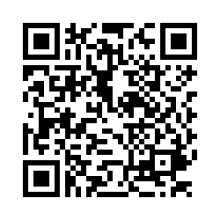
Current Fellow
David Nai, MD
C272 GH
1-319-356-3996, pager #4399
david-nai@uiowa.edu
Education and Training:
BS, Iowa State University, 2010-2014
MD, University of Illinois, 2014-2019
Residency, AP/CP, University of Michigan, 2019-2023
Fellowship, Hematopathology Fellowship, Medical College of Wisconsin Affiliated Hospitals, 2023-2024
Publications:
Merrill MJ, Nai D, Ghosh P, Edwards NA, Hallett M, Ray-Chaudhury A. Neuropathology in a case of episodic ataxia type 4. Neuropathol Appl Neurobiol. 2016;42(3):296-300. PMID: 26264377.
Nai D, Kroft SH, Harrington AM. Clinicopathologic Correlates of Immunophenotype in Mycosis Fungoides/Sézary Syndrome. (In process).
Past Fellows
Of the previous nine fellows in our program, five are practicing transfusion medicine in an academic setting and three are directors at regional blood centers. One is completing his clinical pathology residency (his fellowship was done out of typical sequence).
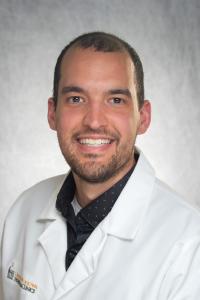
Kai Rogers, MD, PhD (2023-2024)
Medical School: MD, University of Iowa Carver College of Medicine, 2014-2021
Residency: CP, University of Iowa Carver College of Medicine, 2021-2023 and 2024-2025
Current Position: Fourth year of residency at UIHC
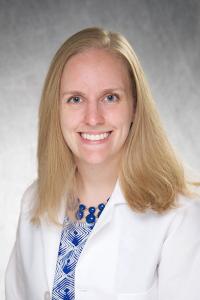
Meredith Parsons, MD (2022-2023)
Medical School: MD, University of Iowa Carver College of Medicine, 2007-2011
Residency: CP, University of Iowa Carver College of Medicine, 2018-2021
Fellowship: Medical Microbiology, University of Iowa Carver College of Medicine, 2012-2022
Current Position: Clinical Assistant Professor, University of Iowa, Iowa City, IA

[Name Redacted] (2021-2022)
Information removed for privacy reasons at the request of the graduate.
Current Position: Staff pathologist at a United States academic intitution.
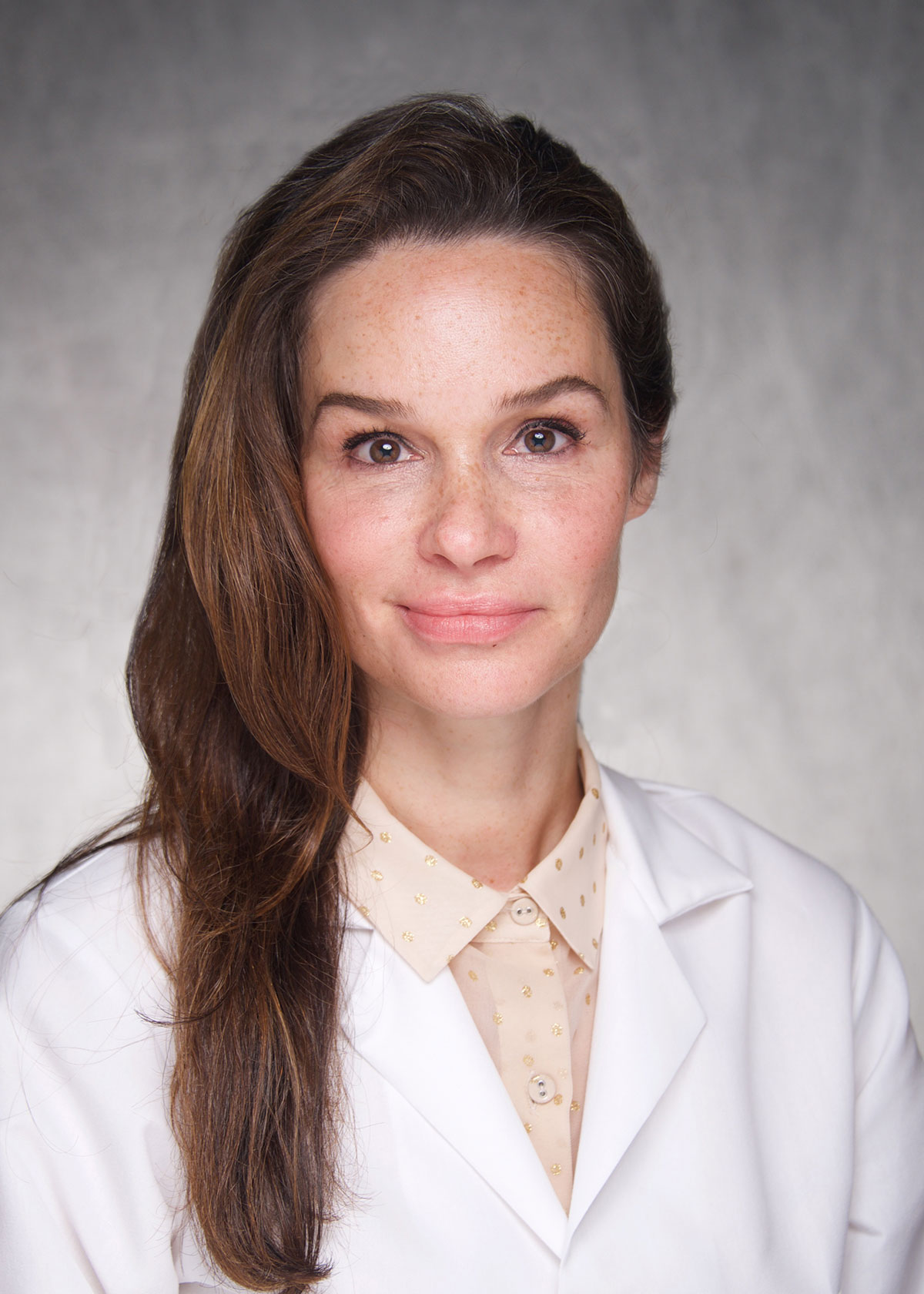
Nicole Saviano, MD (2020-2021)
Medical School: MD, St. George’s University School of Medicine, Grenada, West Indies, 2003-2008
Residency: AP/CP, RWJ Barnabas Health, St. Barnabas Medical Center, Livingston, N.J., 2008-2012
Fellowship: Surgical Pathology, University of California, San Diego, 2012-2013
Current Position: Staff Pathologist at HCA Healthcare in Tampa, FL.
Natalie Malvik, MD, MPH (2018-2019)
Medical School: MD, Southern Illinois University, Springfield, Ill., 2009-2014
Residency: CP, University of Iowa, Roy J. and Lucille A. Carver College of Medicine, Iowa City, Iowa, 2014-2018
Additional Training: MPH, University of Illinois at Chicago, School of Public Health, Chicago, 2006-2008
Current Position: Assistant Professor, St. Louis University School of Medicine, St. Louis
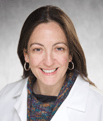
Maressa Pollen, MBBS (2016-2017)
Medical School: Flinders University of South Australia, Adelaide, Australia, 2002-2006
Residency: Louisiana State University, Shreveport, La., 2006-2011
Additional Training: Fellowship, Molecular Genetic, Vanderbilt University, Nashville, Tenn., 2011-2012; Fellowship, Cytology, University of Mississippi, Jackson, Miss., 2015-2016
Current Position: Staff Pathologist, Robert Wood Johnson University Hospital, New Brunswick, N.J.

Gagan Mathur, MD (2015-2016)
Medical School: Dr. S.N. Medical College, Jodhpur, India
Residency: Pathology Residency, University of Iowa, Roy J. and Lucille A. Carver College of Medicine, Iowa City, Iowa, 2012-2015
Current Position: Associate Professor, Keck School of Medicine, University of Southern California, Los Angeles
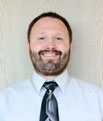
Keith (Alexander) Smith, DO (2014-2015)
Medical School: A.T. Still University, Kirksville, Mo., 2010
Residency: AP/CP, Ball Memorial Hospital, Muncie, Ind., 2010-2011 (program closed); Summa Akron City Hospital, Akron, Ohio, 2011-2014
Current Position: LifeServe Blood Center
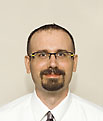
Daniel Marko, BMBS (2012-2013)
Medical School: Flinders University of South Australia, Adelaide, Australia, 2001-2004
Residency: AP/CP, University of California, Davis, Calif., 2004-2009
Additional Training: Hematopathology/Immunopathology Fellowship, University of California, Davis, Calif., 2009-2010; Medical Microbiology Fellowship, University of Iowa Hospitals and Clinics, Iowa City, Iowa, 2010-2012
Current Position: Hematopathologist, Diagnostic Services of Manitoba, Winnipeg, Manitoba, Canada
Transfusion Medicine Consultant, Canadian Blood Services, Winnipeg, Manitoba, Canada
Assistant Professor, University of Manitoba, Department of Pathology, Winnipeg, Manitoba, Canada
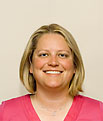
Sara Shunkwiler, MD (2011-2012)
Medical School: University of Iowa, Roy J. and Lucille A. Carver College of Medicine, Iowa City, Iowa, 2006
Residency: AP/CP, University of Florida, Gainesville, Fla., 2006-2010
Additional Training: Cytopathology Fellowship, University of Iowa Hospitals and Clinics, Iowa City, Iowa, 2010-2011
Current Position: Medical Consultant, Fla.

Daniel Walker, MD (2009-2010)
Medical School: Uniformed Services University of Health Sciences, F. Edward Hebert School of Medicine, Bethesda, Md., 1999
Residency: AP/CP, San Antonio Uniformed Services Health Education Consortium, San Antonio, 2005-2009
Current Position: Assistant Professor, University of Missouri School of Medicine, Columbia, Mo.

William (Nick) Rose, MD (2008-2010)
Medical School: Texas Tech University, Lubbock, Texas, 2003
Residency: Stony Brook University Medical Center (CP only), Stony Brook, N.Y., 2005-2008
Current Position: Professor, Pathology and Laboratory Medicine, University of Wisconsin, Madison, Wis.
Fellowship Leaders
Program Director
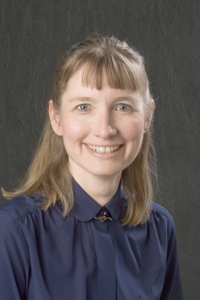 Annette Schlueter, MD, PhD
Annette Schlueter, MD, PhD
Associate Professor
Medical Director, Tissue and Cellular Therapies and Patient Services Sections
Medical Director, National Marrow Donor Program (NMDP)
Apheresis Center #9929
200 Hawkins Drive – C250 General Hospital
Iowa City, IA 52242-1009
Phone: 319-356-0370
Email: annette-schlueter@uiowa.edu
Fellowship Coordinator
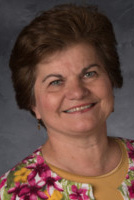
Donna Palmer
200 Hawkins Drive
C684 General Hospital
Iowa City, IA 52242
Phone: 319-356-0319
Fax: 319-384-9613
Email: donna-palmer@uiowa.edu
Department Chair and Faculty
-
A Message from Nitin J. Karandikar, MD, PhD, Chair and Department Executive Officer
Key Faculty and Staff
|
Michael Knudson, MD, PhD |
Annette J. Schlueter, MD, PhD |
|
John Blau, MD |
Meredith Parsons, MD |
|
Natalie Chambers, MT (ASCP), MBA |
Laura Collins, RN, BSN, HP (ASCP) |
